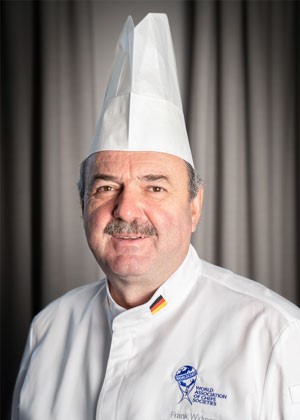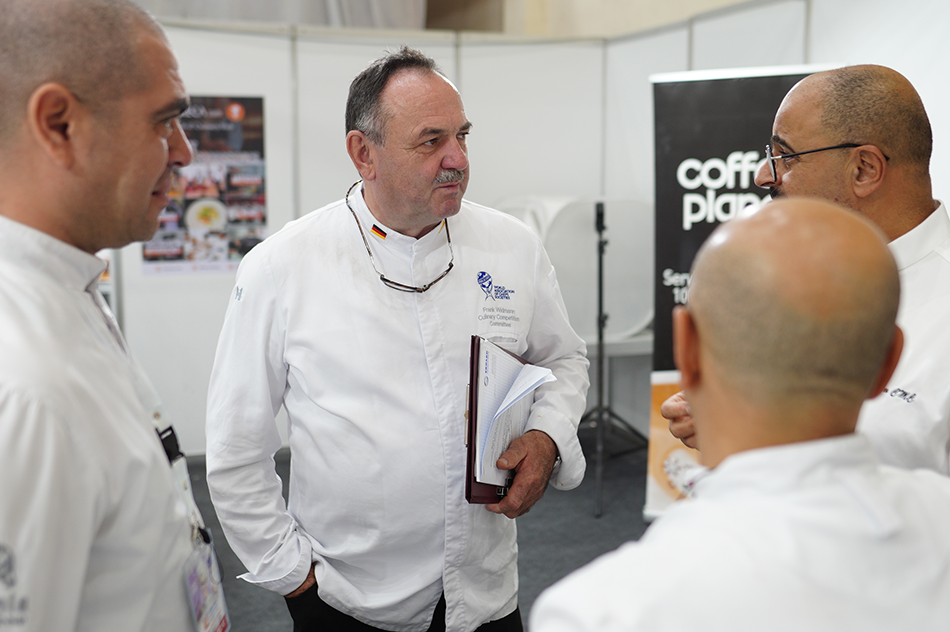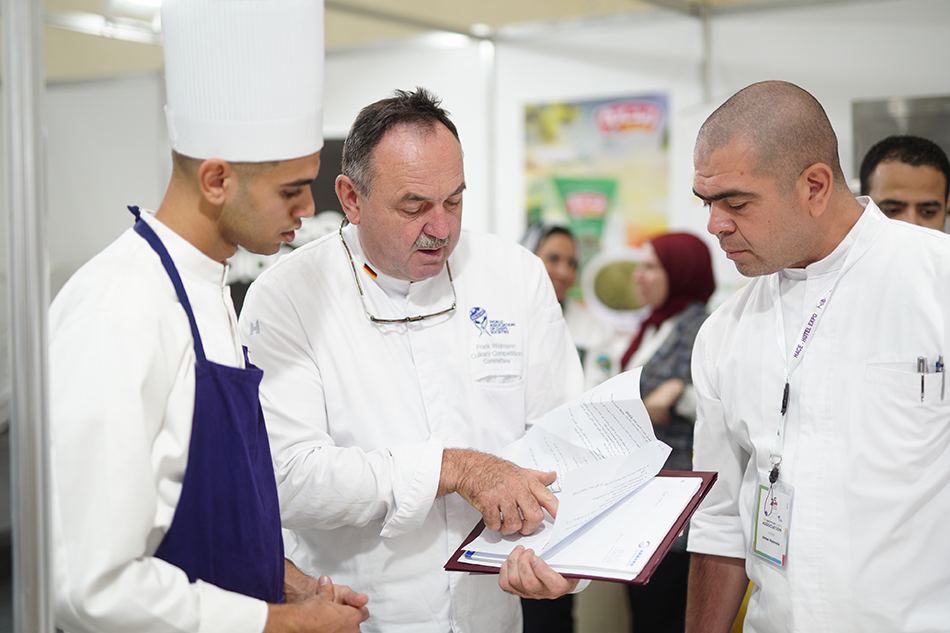

Interview with Chef Frank Widmann

Frank Widmann, a German, Former President of the German National Culinary Team, and is currently the owner of the Widmann Albleben Restaurant. Frank has devoted his life to the culinary world. He served as the Jury President of IKA World Culinary Olympics from 2016 to 2020 and is a member of the Culinary Committee of the World Association of Chefs Societies “WorldChefs”. During his presidency of the German national culinary team, the team won third place, in the 1992 Culinary Olympics. Chef Frank shares with ECA the level of competition in Egypt and the future of competitions internationally.
First, they should train and practice before participating in any competition. This is very important. They should not consider themselves good chefs. But they have to train themselves, they should know that the competition kitchen
is another atmosphere, different from their kitchen. It is very important to be well-trained and have enough practice. The competitor should also know that time management is as important as knowledge of cooking. Time management skills help you to set priorities and plan how to organize your time between different tasks. It is a valuable skill to own by a competitor.

I am coming from the aspic world, when I started competing in my youth, everyone was competing in aspic in Europe. But now it is over, it is gone. Everything is changing fast really, young chefs nowadays do not work with aspic, either because of sustainability as they consider it food waste, nobody can eat it, or because they do not work with this trend anymore. I always considered cold exhibits as a trend show; you show trends to qualified people, but you cannot eat them. Everyone now is asking for sustainability. So, cold aspic exhibits are over.
I was surprised by the level of young chefs; they were really of a good standard. They showed some creativity, but it is very important to know the basics. As for the level of the rest of the competitions, the level was not a high one, as in everywhere else. Concerning hygiene, some contestants were very clean, and others were not, but I was surprised by how many young chefs were motivated, and competitions need young chefs to improve. The future is for young chefs. Sometimes it is difficult for senior chefs, for example, at the prize-giving ceremony, some chefs got really angry because they did not win a medal, this is hard for them.

It is a major issue now, but I am operating a restaurant for many years, so we try to do our own network, we turned to local, and we buy lamb, chicken, beef, and pork directly from farmers. This is very important because prices really increase so fast. Some years ago, some colleagues laughed at me when I said that I buy whole animals, but now trends like “nose to tail” began to become popular in the world, and everyone is talking about sustainability and vegetarianism. Some chefs encourage going regional and using regional products, but I would say go “local”. Here in Egypt, it is sometimes difficult to depend only on local products, but try to depend on local as much as possible. We have also seen this trend here in competitions, where contestants try to use local products as much as they can, and use old recipes with a modern flair.
The food industry is changing very quickly, but for restaurants, I say go to the basics, and do the things you know how. For example, for sauces, why should a restaurant buy all ready-made stocks when they can produce them with better quality? To survive, you need to cut down on convenience products and start making your own. In the restaurant industry, we face another challenge, especially in Europe, the current staff shortage. We are having difficulty finding young chefs to work in restaurants, and if we find any, he wants to cook directly, without climbing the career ladder. This is a serious situation in Europe.